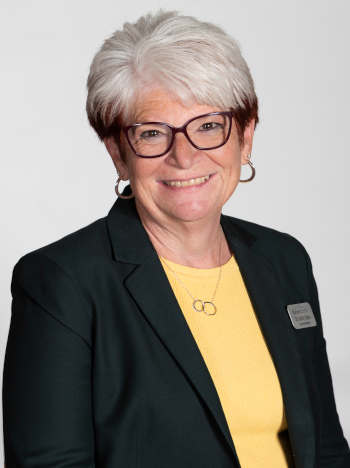
LOWER LAKE, Calif. — For a couple of years, our theme has been getting better at getting better.
While we certainly have students who are thriving, it’s clear that many of our students are struggling academically and socially and we want to help them thrive, too.
Each student’s specific circumstance is unique, but the challenging behaviors are the same. Students feel anxious, sad, angry and vulnerable, and their inability to handle these difficult emotions is ruining their ability to thrive in school.
We’re seeing everything from a lack of concentration to outright violence and antisocial behavior.
When students don’t perform well, people often look for someone else to blame. At a time when schools and families should be working as a team, we are looking at each other as the source of the problem.
The truth is, the problem is way bigger than either of us. The world is getting more complex and challenging every day, and even adults (including teachers and parents) are having a hard time managing it all.
I was talking with Clearlake Police Chief Tim Hobbs recently, and he said he is seeing evidence of the same struggles in our community at large.
So, how do we help kids if we can hardly help ourselves? The answer, I believe, is to work together.
Right now, when teachers or principals call home to discuss a student’s behavior expecting to be met with a parent who wants to work with us to help their child, we often face parents’ denial, anger, or blame — and sometimes even threats.
This didn’t used to be the case and we’re trying to understand what caused schools and families to go from partners to opposing sides — and more importantly, how can we reverse this.
In a recent case, a mother insisted that her son was not responsible for a violent situation, and she was furious at what she perceived to be the unfair treatment of her son.
According to her, he had simply been in the wrong place at the wrong time (because that’s what her son told her). In fact, her son had been the instigator.
It was only after we all got together and I showed the student what his mother was willing to go through for him that the student was willing to admit his role in what happened.
Now, the mother and I are a team and we are determined to help this student overcome the obstacles in his way so he can graduate. She and I have built enough trust that we are both willing to share information and, when it makes sense, to compromise.
In another situation, one student struck another student and was suspended for it. Her parents explained that their daughter’s action was justified because the other student had harassed her, and they wanted assurances that the other student would be punished.
While I completely understand the parents’ feelings, schools cannot share confidential disciplinary information.
We assured the parents we were investigating the situation, but they didn’t believe justice was being served, so they began to take things into their own hands and we had to involve local law enforcement.
If we had had a stronger relationship in place, the parents may have trusted us and things probably would have gone a lot better for everyone.
Kids are always watching adults for cues on how to behave. If we fly off the handle, they will too. If we take a deep breath and calm down before doing something we regret, they will see that as the best way to handle things. If we hear juicy gossip and share it without verifying it, they will too. If we ask questions when we get disturbing information, they will see that there are often at least two sides to every story.
With everything going on in our schools and in our community, it is clear to me that if schools and families can come together, our students will have a much better chance of growing into their potential.
We need to develop more resilient relationships so we can work through problems when they come up. Students make mistakes. Teachers make mistakes. Parents make mistakes. Everyone makes mistakes. If we can build trust with each other, we can learn from mistakes and come out stronger.
To that end, in late March, schools in the Konocti Unified School District will begin hosting parent meetings so educators can learn from you, our student families, about how we can do better, and we will share information about how you can work with your school to support your student’s academic success. Check your school website for dates and times.
There is a ton of evidence that when schools and families work together, students do better. Let’s give our students what they deserve — an opportunity to thrive.
Will you join us?
Dr. Becky Salato is superintendent of the Konocti Unified School District.


 How to resolve AdBlock issue?
How to resolve AdBlock issue? 




